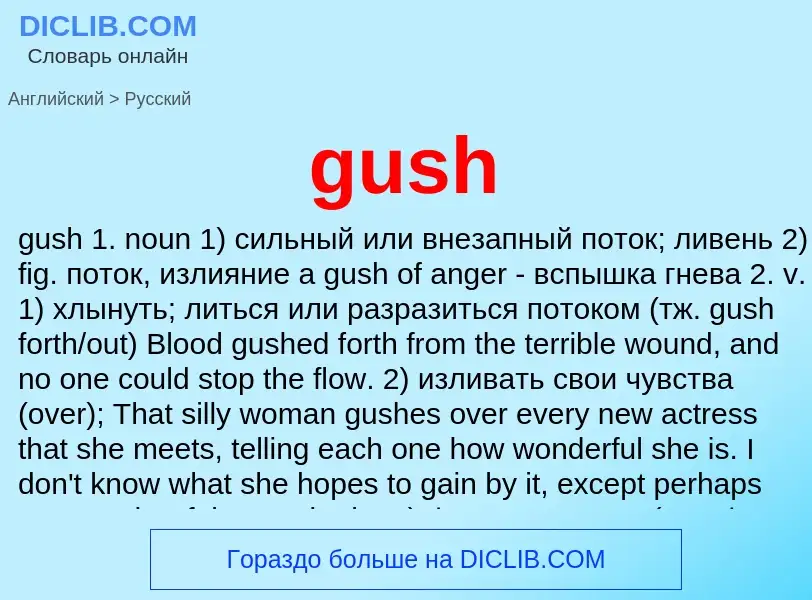Translation and analysis of words by ChatGPT artificial intelligence
On this page you can get a detailed analysis of a word or phrase, produced by the best artificial intelligence technology to date:
- how the word is used
- frequency of use
- it is used more often in oral or written speech
- word translation options
- usage examples (several phrases with translation)
- etymology
gush in - translation to English
['gʌʃiŋ]
общая лексика
хлынувший
фонтанирующий
прилагательное
общая лексика
быстро льющийся или текущий
извергающий
фонтанирующий
разговорное выражение
излишне сентиментальный
плаксивый
обильный
чрезмерный
[gʌʃ]
общая лексика
поток
изливаться
нефтегазовая промышленность
фонтанировать
существительное
[gʌʃ]
общая лексика
сильный
стремительный или внезапно возникший поток
ливень
поток слов
порыв
вспышка
сильный или внезапный поток
разговорное выражение
излишняя сентиментальность
потоки сентиментальных излияний
в переносном значении
поток, излияние
глагол
общая лексика
хлынуть
литься потоком
хлестать
бить
извергать
литься или разразиться потоком
изливать свои чувства
разговорное выражение
изливать чувства
разглагольствовать
ораторствовать (over)
специальный термин
фонтанировать
синоним
Смотрите также
Definition
Wikipedia

A cloudburst is an extreme amount of precipitation in a short period of time, sometimes accompanied by hail and thunder, which is capable of creating flood conditions. Cloudbursts can quickly dump large amounts of water, e.g. 25 mm of the precipitation corresponds to 25,000 metric tons per square kilometre (1 inch corresponds to 72,300 short tons over one square mile). However, cloudbursts are infrequent as they occur only via the orographic lift or occasionally when a warm air parcel mixes with cooler air, resulting in sudden condensation. At times, a large amount of runoff from higher elevations is mistakenly conflated with a cloudburst. The term "cloudburst" arose from the notion that clouds were akin to water balloons and could burst, resulting in rapid precipitation. Though this idea has since been disproven, the term remains in use.


